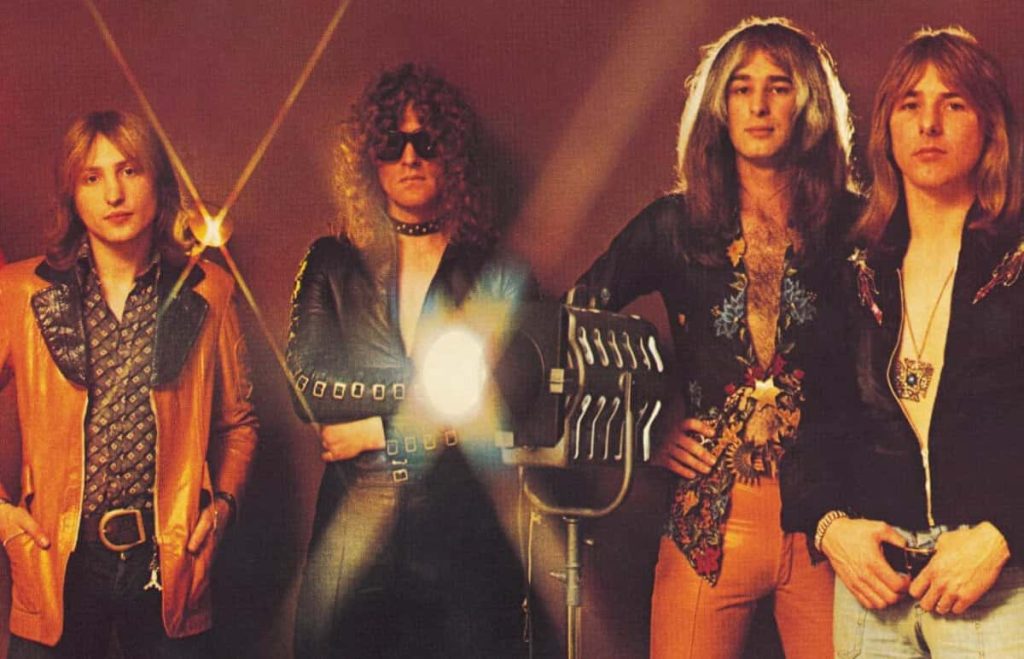
A defiant cry of youthful identity and resilience in the face of societal change.
Ah, “All the Young Dudes” by Mott the Hoople… the very name conjures images of smoky backrooms, the clang of guitars, and a generation finding its voice amidst the shifting landscape of the early 1970s. Released in the summer of 1972, this iconic track wasn’t just a song; it was a statement, a rallying cry for those who felt like outsiders, the beautifully flawed individuals who didn’t quite fit the conventional mold. It swiftly climbed the charts, reaching a respectable number three on the UK Singles Chart and making a significant impact in the United States as well, peaking at number 37 on the Billboard Hot 100. These weren’t just numbers; they were a testament to the song’s resonance with a burgeoning youth culture hungry for something that spoke directly to their experiences.
The story behind “All the Young Dudes” is as captivating as the song itself, a serendipitous moment in rock history orchestrated by none other than the enigmatic David Bowie. Mott the Hoople, a band brimming with talent but struggling to find mainstream success despite a dedicated cult following, was on the verge of calling it quits. Their previous singles hadn’t quite broken through, and the weight of expectation was beginning to take its toll. It was at this critical juncture that Bowie, a fervent admirer of the band, stepped in with an offer they couldn’t refuse. He initially presented them with “Suffragette City”, a track that would later become a staple of his own illustrious career. However, Mott the Hoople politely declined, feeling it wasn’t quite the right fit for them. Undeterred, Bowie returned with another gem, a song he had penned himself: “All the Young Dudes”.
This wasn’t just a cast-off; it was a song imbued with Bowie’s keen understanding of the zeitgeist and his uncanny ability to tap into the anxieties and aspirations of youth. The lyrics painted a vivid picture of a generation grappling with identity, uncertainty about the future, and a sense of being different. Lines like “Well, Billy rapped all night about his suicide / How he’d kick it in the head when he was twenty-five” weren’t just sensational; they reflected the raw, often unspoken anxieties that many young people felt. Yet, amidst this apparent darkness, there was a powerful undercurrent of unity and resilience. The chorus, with its infectious “All the young dudes, carry the news / Boogaloo dudes, carry the news,” became an anthem of solidarity, a defiant embrace of individuality. It suggested that even in their perceived alienation, these “young dudes” were connected, sharing their experiences and carrying their own unique truths forward.
The meaning of “All the Young Dudes” is multifaceted. On the surface, it’s an observation of youth culture, a snapshot of a generation navigating its own path. But delve deeper, and you find themes of acceptance, the beauty in being different, and the power of collective identity. The song doesn’t shy away from the darker aspects of adolescence – the confusion, the fear of the future – but it ultimately offers a message of hope and belonging. It suggests that it’s okay to be an outsider, that there’s strength in numbers, and that the experiences of youth, however tumultuous, are valid and important.
The recording of “All the Young Dudes”, which became the title track of Mott the Hoople’s fifth studio album, released later in 1972, captured the raw energy and anthemic quality of the song perfectly. Ian Hunter’s distinctive vocals, filled with a world-weary yet defiant tone, delivered Bowie’s lyrics with conviction. The driving piano riff, the soaring saxophone solo, and the infectious chorus all combined to create a sound that was both gritty and glamorous, perfectly reflecting the spirit of the era.
“All the Young Dudes” wasn’t just a hit song for Mott the Hoople; it revitalized their career and cemented their place in rock history. It also further solidified David Bowie’s reputation as a visionary artist and a generous supporter of fellow musicians. The song has endured through the decades, its themes of youthful identity and resilience continuing to resonate with new generations. It remains a timeless anthem for anyone who has ever felt like they didn’t quite fit in, a powerful reminder that there is strength and beauty in being one of the “young dudes.” So, let the music play, close your eyes, and remember those days when this song felt like it was written just for you.